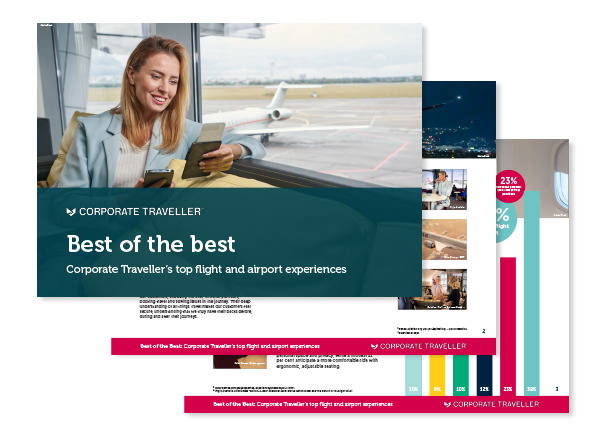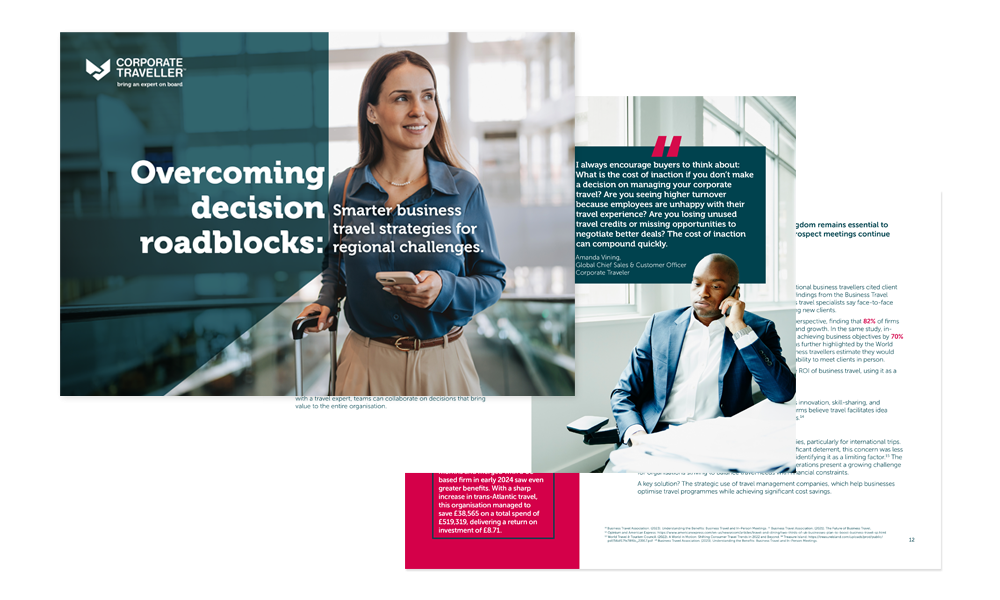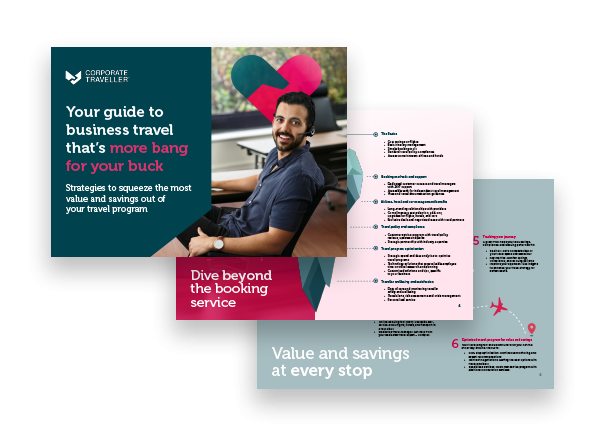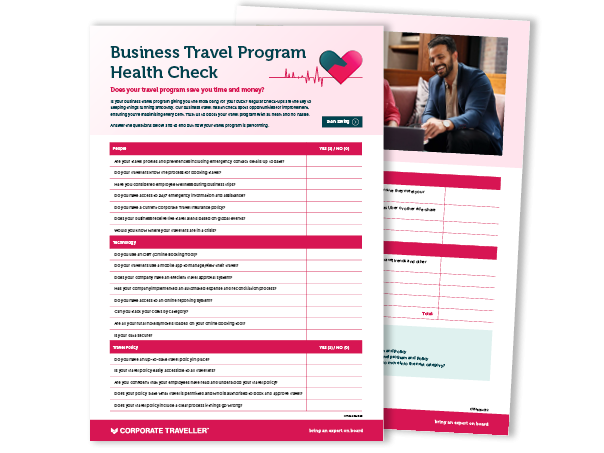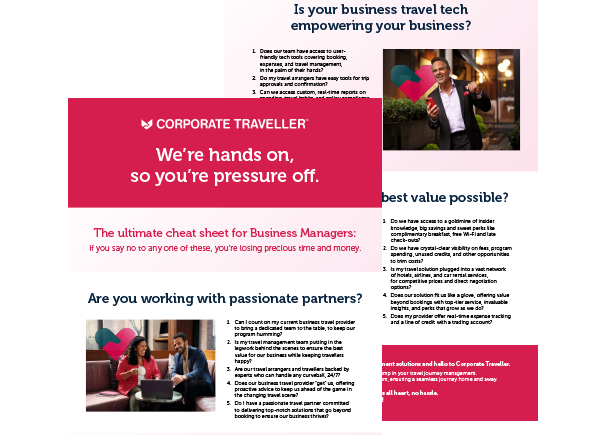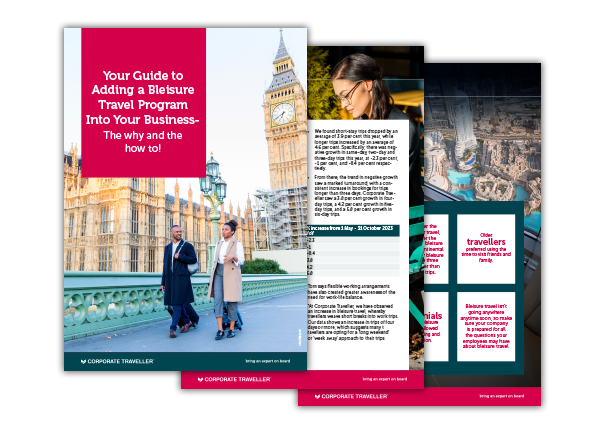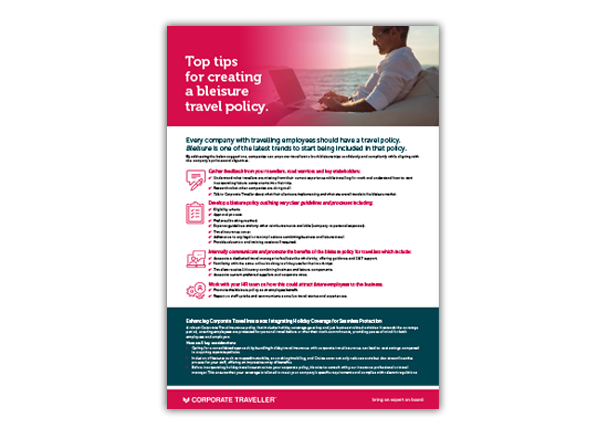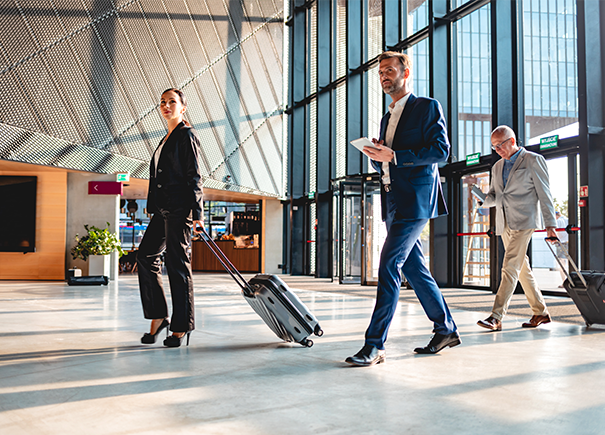Nine ways to maintain high productivity levels on business trips
Travelling for business offers executives a chance to conduct business in new parts of the world, forge corporate relationships and enjoy some employee perks. But managing important deliverables, approvals and deadlines while travelling can lead to an over-stimulating and disruptive work environment without adequate planning.
Corporate Traveller’s Global Managing Director, Tom Walley, travels regularly between multiple cities each month to oversee hundreds of employees. Maintaining productivity is a challenge he navigates frequently, and he has equipped himself with several tools to stay on top of his workload while travelling.
Tom says, “Being highly productive while travelling is particularly a challenge for business leaders who need to oversee and sign off on deliverables from their teams back home, join virtual meetings, approve budgets, and generally be available for their own managers or board, as well as urgent requests by their direct reports.
“Getting on impromptu calls, and looking over important presentations and contracts are all part and parcel of the deliverables I need to meet while travelling.
“Many executives often return from a business trip to endless emails and messages. Some leaders also find that if their productively slows, so does the teams. Just because you’re travelling, your personal productivity and that of your team back at HQ shouldn’t slow down if you plan carefully and have the right technologies in place. There’s also a way to avoid late nights working in your hotel room.”
Below Tom shares nine ways he keeps productivity levels high while travelling for business.
- Delegate before you travel.
- If you have planned a tightly packed business trip, you will not be able to carry the same workload that you would normally complete in the office. Before leaving for your trip, delegate projects and deliverables to in-office team members to maintain productivity back at HQ. If you’re travelling with a team, ensure each person has a realistic balanced workload they can manage effectively.
- Set up your digital communication and synchronise your files.
- I recommend installing messaging and virtual meeting apps used by your team on all devices – and synchronise documents and emails across them. Ensure you have the best fit-for-purpose applications and be sure to check beforehand if the available free space is adequate for all your files, whether you’ll need to upgrade, and if they support your devices and file types. You could store large files on Cloud drives such as Google Drive or Dropbox, which provide free capped storage.
- Use your most productive time of day for desk work.
- If possible, dedicate one or two time slots per day – when you know you will be most productive – to desk-based work such as presentation updates, approvals, team meetings and any issues management back at HQ. Some travellers go beyond this and develop a realistic schedule of meetings, desk work, travel time and leisure activities before travelling to prevent impromptu and unnecessary activities on their trip.
- Pre-book everything.
- Make advance bookings as much as possible to save time and allow your travel to run smoothly. Not only flights and transfers, but also transport to and from meetings, meals out, any required in-room hotel meals, any essential hotel dry cleaning, and any leisure activities.
- Be selective with your time.
- Don’t let your travel schedule unravel. Try to avoid meetings running past their scheduled times. Consider using rideshare rather than car hire, so you can work during the drive. Keep a consistent sleep routine so you won’t need to nap in transit and try to use transit waiting times and flights for work.
- Fly early.
- Book an early morning flight, and get a good night’s sleep beforehand, to ensure you have a full and productive day at your destination.
- Use your hotel or mealtimes for meetings.
- Take shortcuts and multitask where possible. If you are staying at a four- or five-star city hotel, you could hold informal meetings for two or three in the lobby café. See if your stakeholders are open to meeting over lunch or dinner to relieve your stress and lighten the meeting atmosphere.
- Get the best Wi-Fi everywhere.
- Choose flights and accommodation with the fastest Wi-Fi. Comfortable internet browsing requires a broadband connection of at least 25Mpbs to support up to two devices. When travelling with colleagues, ensure you have 100-200Mpbs internet to support multiple devices.[1] If you are travelling to a rural or regional area, take a prepaid pocket modem or dongle, available from most telco retailers. When travelling internationally, you will need to weigh up the capabilities of your mobile phone plan, particularly its international roaming offering.
- Outsource your travel admin.
- Knowing what you should do yourself, and what you can rely on others for, is an essential part of remaining productive while travelling for work. Partnering with travel management companies in this complex travel environment can help to avoid management of flight delays, pandemic restrictions, and check-in requirements on a work trip. Corporate Traveller, for instance, enables businesses to book transportation and accommodation on a single consolidated platform, backed by a team of travel advisors. Business travel itineraries are hosted on the CT.GO app, which features an AI assistant named Sam to notify travellers on the go and carries out simple tasks such as flight check-ins.
[1] BroadbandNow, 2020, broadbandnow.com/guides/how-much-internet-speed-do-i-need
